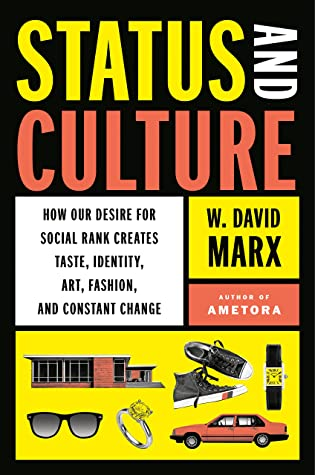As we continue our discussion on status groups, for a financial blog, we should learn to distinguish between Old Money and New Money.
Old Money
Old Money has evolved to come up with a distinctive style that is quite hard to imitate. This is characterised by high levels of financial and cultural capital. The objective of Old Money is not to be noticed by ordinary people, but they want to be recognised by their own kind.
When it comes to fashion, Old Money does not try to be flashy or attract unnecessary attention. Colours are often muted. While I'm no fashion expert, some articles I researched recommend dressing up like you are attending a tennis match. Old Money brands include Ralph Lauren and Chanel - these are brands which have been around for a long time.
From a financial perspective Old Money, while undisputably rich, may have limits when it comes to conspicuous consumption because their wealth is often locked into trust funds. They have many other ways to distinguish themselves, and this can involve their high cultural capital. Old Wealth can spend a lot of time studying art, and it's not really fun for ordinary people to appreciate some complicated movements in classical music.
Another aesthetic Old Money tends to love is patina. It's one thing to buy a luxury watch worth six digits, but Old Money can inherit a 200-year-old timepiece that has oxidation at the right kind of places.
New Money
New Money is within reach of professionals in business, finance, law or medicine. For a while, the crypto folks we also part of this group of people.
We should be more familiar with the conspicuous consumption of New Money. New Money has made their wealth within the same generation, so they can be quite self-conscious of their low cultural capital.
And this chip on their shoulder is the reason why luxury companies make so much money every year. New Rich have the ability and willingness to spend on supercars, megayachts and Birkin Bags. To compete with other members of New Money, they are even happy to decorate their servants and employees in similar designer gear.
When it comes to Art, New Money has no time to study the works of an artist like Renoir, but they are happy to plonk millions of dollars on Jeff Koons or an NFT.
Imitation and counter-signalling
Now let us have a discussion of what this means for us ordinary mortals who are neither old money nor new money.
One way ordinary folks like us interact with Old and New Money is through imitation.
While we can't adopt all the aspects of the wealthy, we can focus on adopting some parts of the wealthy into our lifestyle. I noticed that a lot of middle-income Singaporeans have a strong interest in luxury watches, and there are plenty of options from $5,000 - $20,000 range like Rolex and IWc. These brands cannot solely operate on the upper ends of the economic strata, so coming up with mid-range options is important for the bottom line. The problem with this is that for these luxury items, anyone with the right amount of credit can own a luxury watch, so I don't understand why there's a prestige in owning a luxury watch. This is why my personal policy is not to wear one to most engagements, preferring to own stocks in Hour Glass instead.
Another way in which ordinary folks can deal with these status groups is to engage in counter-signalling. For some folks, it is simply impossible to be part of even Old Money or New Money, and imitation can only take you so far. So people form counter-cultures or groups that are directly opposed to Old or New Money.
One example of counter-cuture is a rebellious group in the 1980s called Centrepoint Kids who are basically Ah Bengs/Ah Lians with a JPOP aesthetic who loved hanging around Far East Plaza and Centrepoint. They love buying cheap jewellery at this place called Lips Enterprises that still exists today. Centrepoint kids are rebelling against the mainstream good boys and girls who study hard and want to live the Singapore Dream.
I'd like to think that the FIRE movement is a counter-culture to Old and New Money. FIRE folks use money to buy their freedom from a toxic workplace and gain more control over their lives. The preferred approach is to be frugal and track their expenses. The most prominent FIRE folks have no identifiable aesthetic - our favourite brands are Decathlon and Uniqlo. We also eat at food courts and kinda proud about taking public transport.
An understanding of the differences between Old Money, and New Money and the twin responses to them can help many of us in decoding the consumption behaviour of Singaporeans and stand our ground when pursuing our financial independence goals.
This is why when I met another trainer in my industry who told me that he spends $1,000 a month on his pet poodle, I replied with a smile that he probably spends more on his dog than how much I spend on my son.
On the markets, I noticed that many students are buying T-Bills because they are yielding north of 4%. I made a presentation this morning to ask that some folks reconsider because even DBS is yielding more than T-Bills and can even generate higher dividends over time. Also, there is more flexibility as it is entirely possible that the market bottom can happen within the next 6 months.







